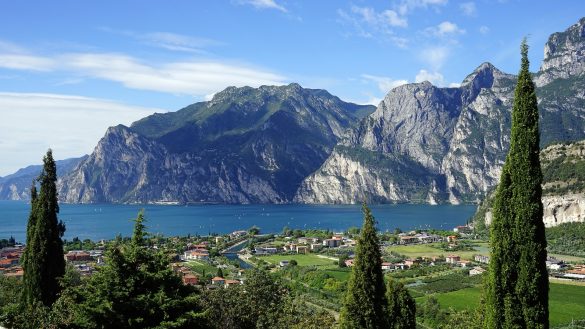Lombardy has adopted Italy’s first regional climate law, marking a decisive step towards a just transition and a sustainable development at the regional level. The law aims to integrate mitigation and adaptation policies across all key sectors and levels of decision-making, encouraging a more coherent and strategic approach to addressing climate change throughout the territory. As the first of its kind in Italy, the law is not only a legislative milestone, but a blueprint for action that other regions can replicate.
A systemic approach to climate integration
The new regional climate law, adopted in July 2025, strengthens climate governance by linking climate goals with regional planning, programming, and evaluation processes. Promoting a gradual decarbonization process in line with the European 2050 long-term strategy to be climate-neutral, the law promotes climate mainstreaming – ensuring that public policies and investments, regardless of their primary focus, are assessed for climate relevance and impact. By embedding these considerations into transport, health, energy, land use, agriculture, and infrastructure planning, the law aims to align sectoral policies with climate targets across all sectors.
“We are proud to be among the first regions in Italy and Europe to adopt a law that concretely addresses the challenges posed by climate change, ensuring a more sustainable future for all”, highlighted Giorgio Maione, Minister of Environment and Climate of Lombardy Region and Vice-president of Regions4 about the approval of the Climate Law by Lombardy’s Regional Council.
Mitigation and adaptation: the two cornerstones of the law
The Climate Law focuses on two fundamental pillars: mitigation, such as the reduction of greenhouse gas emissions, and adaptation to address extreme weather events. At its core, the law includes measures to both reduce greenhouse gas emissions and build resilience to climate impacts. These range from managing extreme weather and restoring soil, to reforesting degraded areas and adapting agriculture in climate-sensitive mountain regions. Urban cooling and the removal of impervious surfaces are encouraged to counter urban heat islands and improve quality of life. Climate criteria related to carbon absorption in soils, environmental renovation, reforestation, and sustainable construction are now considered in building and infrastructure development, with a focus on promoting recycled materials and sustainable mobility.
Energy transition for a low-carbon future
The energy transition is a central pillar of the law. It supports renewable and alternative energy sources -such as solar, biomass, hydrogen, and biogas – while introducing stronger obligations to install renewable systems in buildings and expand electric vehicle charging infrastructure. Regional subsidies now favour companies that implement energy management systems, such as ISO 50001, and public bodies are encouraged to adopt energy performance contracts. Moreover, when renewing electricity contracts, public entities are obliged to source electricity entirely from renewable sources.
A Just transition for people and nature
A newly introduced lens is the concept of just transition. As the region moves towards a low-carbon economy, the law seeks to ensure that this transition does not exacerbate social disparities. It includes measures to safeguard job opportunities, support social inclusion and gender equality, and prevent new forms of exclusion from emerging.
The law also encourages innovative and experimental projects that enhance local biodiversity and support the circular economy, promoting solutions with ecosystemic value.
New mechanisms for collaboration and shared responsibility
Acknowledging the need for coordinated action, the law establishes a Regional Committee for Climate, a multidisciplinary advisory body composed of experts in environmental science, agronomy, legal affairs, economics, energy, spatial planning, health, and transport. This committee will support evidence-based policymaking.
In parallel, the law makes mitigation and adaptation legally binding for local administrations, and introduces Territorial Sustainability Pacts – voluntary agreements among public institutions, private actors, and civil society to collectively pursue climate and sustainability goals. The region may provide financial or procedural support to participating actors, fostering local collaboration to accelerate implementation.
By integrating mitigation and adaptation across all sectors and levels of governance, and prioritizing innovation, inclusion and a just transition, Lombardy is setting a new standard for integrated climate policy, offering a roadmap for other regions to accelerate climate action in their territories – an example of governance in action and a step toward a just transition.
More here: www.lombardianotizie.online/clima-legge-lombardia
More here: www.lombardiaquotidiano.com/post/approvata-dal-consiglio-regionale-la-legge-sul-clima
About #RegionsVoice: In 2019, Regions4 launched the global campaign #RegionsVoice in a collective effort to bring the voice of regional governments to the major events and negotiation processes in sustainable development within the UN. The aim of the campaign is to ensure the visibility and wider recognition of the role of regional governments in sustainable development, by elevating both individual and collective messages and engaging with a wider audience during the UN Decade of Action.







